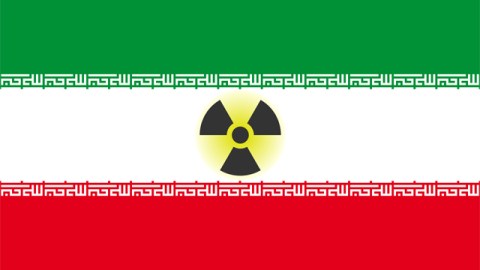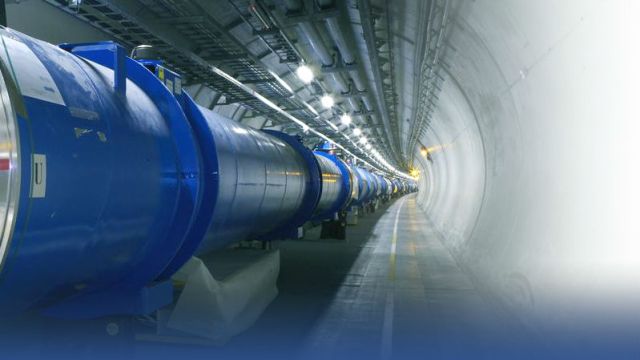The Real Human Costs of Iran’s Nuclear Development

What is the Big Idea?
Iran’s nuclear program dates back to the 1960s and its progress has ebbed and flowed throughout its history. But Scott Sagan, Senior Fellow at the Center for International Security and Cooperation, pinpoints specific events in recent history in an interview with Big Think that might have taken Iran’s program out of hiatus and fast-tracked its development for military use.
“I believe that President Bush made a major mistake in 2003 when in his State of the Union Address he labeled Iran, Iraq and North Korea as the axis of evil and then proceeded to invade Iraq in March 2003, the one country of those three that turned out not to have an active nuclear weapons program. That action encouraged both North Korea and Iran, which already had had a nuclear weapons program. I’m not in any way blaming the Bush Administration for that, but it encouraged them to stop negotiations and to move more vigorously in developing their program.”
The current administration is trying to reverse the effects of Bush’s legacy. At the end of 2011, President Obama signed off on coordinated trade sanctions with other western powers against Iran in an ongoing battle to stamp out nuclear development by the estranged country. Earlier this month, Obama made good on some of those threats by freezing Iranian assets in the United States.
The impetus for these latest draconian measures stems from the release of a United Nations report back in November that revealed strong evidence of a nuclear weapon under development in Iran.
There are signs that the mounting international pressure is working and Iran may be ready to negotiate. But it wasn’t always this easy to bully them into talking. After the U.S. successfully invaded Iraq, there was an implicit threat that Iran would be next, according to Sagan. Nuclear development became more urgent as the war with Iraq began to sour.
“I think the Iranian leadership became more reluctant to negotiate over their nuclear program and became more confident that in the long term a nuclear weapons program enables them to have a deterrent against the United States” said Sagan.
What is the Significance?
Nuclear weapons are a mixed blessing, according to Sagan. On one hand, Iran’s leaders were on to something as nuclear weapons are an effective deterrent against foreign threats. And history serves as evidence of this.
“It’s hard for me to believe that the United States and the Soviet Union were not influenced to be more cautious in their relationship during the Cold War because of the great threat that if things got out of control, if a conflict occurred and it escalated it would be disastrous for both countries,” he said. “That’s the positive side, the deterrent affect of nuclear weapons.”
So what is the negative side?
“Nuclear weapons can’t guarantee that states will behave intelligently, that states will always act according to prudence,” said Sagan. “The Cold War had many hidden incidents, near misses, close calls to disaster some of which we know about like the Cuban Missile Crisis or the Berlin Crisis or the various crises between China and the United States in the Taiwan Straits.”
But aside from the explicit dangers of nuclear weapons and the human costs if one was to be deployed, there are other costs associated with Iran’s conflict with western powers. There is the question who the sanctions are really hurting.
The United Nation’s sanctions against Iraq in the 1990s proved to be devastating to its economy, infrastructure and public health. A report issued by the U.N.’s World Health Organization reveals the details of Iraq’s economic and social demise, which includes widespread unemployment, malnutrition, cholera and anemia. Meanwhile, Saddam Hussein circumvented the Oil-for-Food Program, smuggled oil out of the country and spent oil money on lavish palaces and his inner circle.
It is questionable whether Obama’s latest sanctions will be effective at staving off Iran’s nuclear development, according to The New York Times. Military action is still on the table. But sanctions are already being blamed for high inflation in Iran, according to a CNN Money report. Food, medicine and fuel prices have increased by 50 percent. Their currency has lost 50 percent of its value and foreign investors have been scared off by the sanctions.
The good news is, experts say Iran doesn’t actually have a nuclear weapon yet and Sagan agrees. Still, he argues that history shouldn’t repeat itself.
“My own judgment is that they haven’t yet developed nuclear weapons. They have a nuclear option that they’re trying to protect and it’s going to be a very long and very difficult process to get them to move away from that if at all possible,” said Sagan. “For me basing a nation’s security on nuclear weapons is like walking across thin ice. The fact that that United States and the Soviet Union did during the Cold War does not mean that we can do it forever. It doesn’t mean that we should encourage other countries to do it.”





